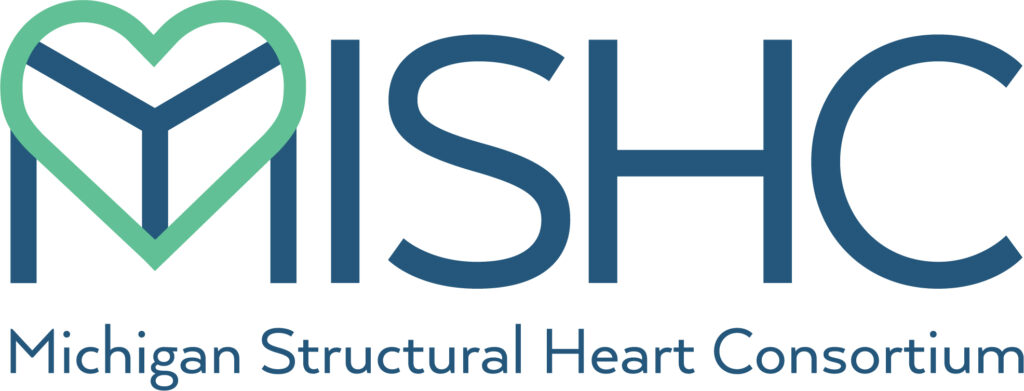
The Michigan Structural Heart Consortium (MISHC) is a collaboration between the Blue Cross Blue Shield of Michigan Cardiovascular Consortium and the Michigan Society of Thoracic and Cardiovascular Surgeons Quality Collaborative. MISHC emphasizes the collaboration between interventionalists, surgeons and the patient in making the best treatment choice for the patient’s lifetime management.
It utilizes a prospective registry and a regional collaborative effort to assess and improve quality of care and outcomes of patients undergoing structural heart procedures.
Transcatheter Aortic Valve Replacement
Transcatheter aortic valve replacement (TAVR – also known as TAVI or transcatheter aortic valve implantation) is a procedure for patients with aortic stenosis, a narrowing of the aortic valve opening. TAVR percutaneously delivers a fully collapsible bioprosthetic valve to the valve site through a catheter. TAVR initially provided an alternative for people who needed valve replacement but were considered high or inoperable risk for open heart surgery. Now, the minimally invasive approach is the first option for many people, regardless of risk. Through shared decision making the heart team and the patient discuss goals of care and develop a life plan that makes sense for each patient.
Transcatheter Mitral Valve Repair and Replacement
Transcatheter Edge-to-Edge Repair (TEER) is used in the treatment of mitral regurgitation. A TEER device involves clipping together a portion of the mitral valve leaflets as treatment for reducing mitral regurgitation (MR).
Transcatheter Mitral Valve Replacement (TMVR) is a procedure for patients with mitral stenosis, or narrowing of the mitral valve opening. TMVR percutaneously delivers a fully collapsible bioprosthetic valve to the valve site through a catheter. Both TEER and TMVR are performed mainly in patients who are judged to be high to prohibitive surgical risk for open heart surgery.
For more information visit mishc.org.